Böcker om spel: Ask Iwata
Det enda som är bättre än att spela tv-spel är väl att läsa böcker, så visst är det tur att det har kommit så många fascinerade böcker om tv-spel den senaste tiden! Jag har valt ut sex av de senaste årets mest omtalade böcker om tv-spelshistorien och jag kommer att recensera dessa böcker i sex artiklar.

Tidigare recensioner:
Press Reset av Jason Schreier,
Console Wars av Blake J. Harris,
Disrupting the Game av Reggie Fils-Aimé,
Control Freak av Cliff Bleszinski,
Significant Zero av Walt Williams.
I dag, i den sista av dessa sex recensioner, tittar vi närmare på den korta men sprängfyllda boken Ask Iwata med samlade visdomar den den legendariske Nintendo-chefen Satoru Iwata, med bidrag av den lika legendariska Nintendo-produceten Shigeru Miyamoto och Earthbound-skaparen Shigesato Itoi.
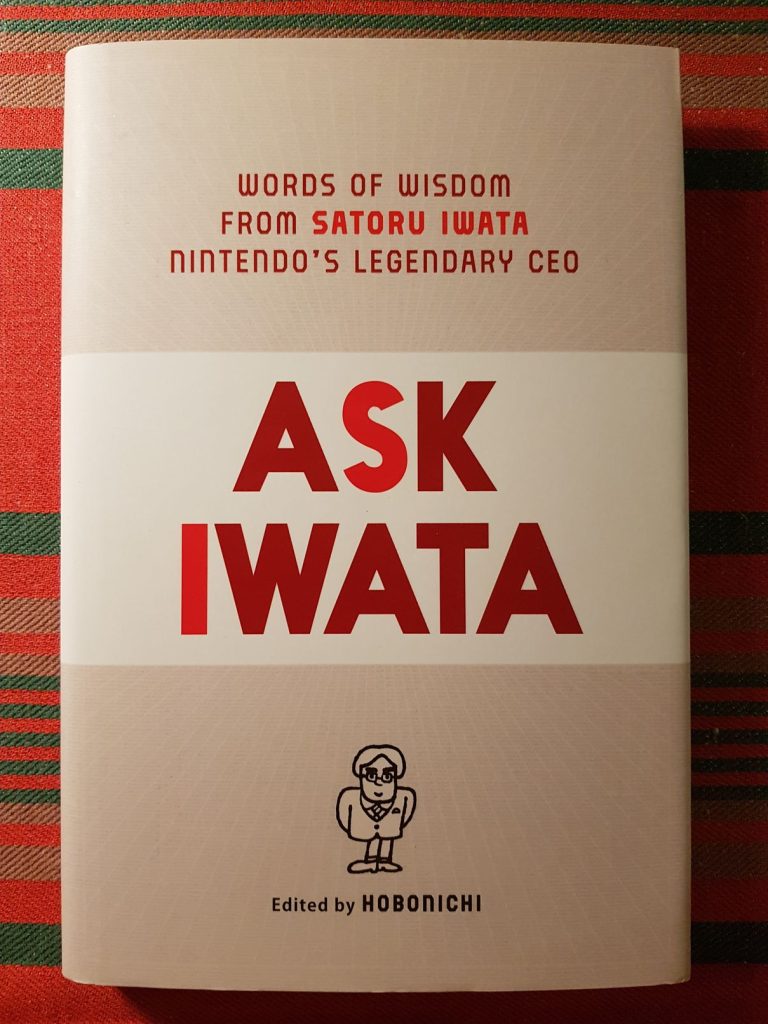
Vad? Satoru Iwata var högste chef för Nintendo från 2002 till sin allt för tidiga död 2015. Trots att han älskade böcker, och framför allt böcker om hur man ska driva en framgångsrik affärsverksamhet, så skrev han själv aldrig någon bok. Han skrev däremot ett antal artiklar om sin tid i spelbranchen för en japansk hemsida som drevs av Earthbound-skaparen Shigesato Itoi, och dessa artiklar har efter hans död samlats i en behändig bok.
Vilka år? Vi får såväl historien om Iwatas tid på HAL Laboratory på 90-talet, först som programmerare och senare som högste chef, och hans tid som högste chef för Nintendo på 00-talet.
Vilka spel? Famicom Grand Prix II: 3D Hot Rally, Earthbound, Kirby’s Dream Land, Super Smash Bros, Pokémon Snap, WarioWare
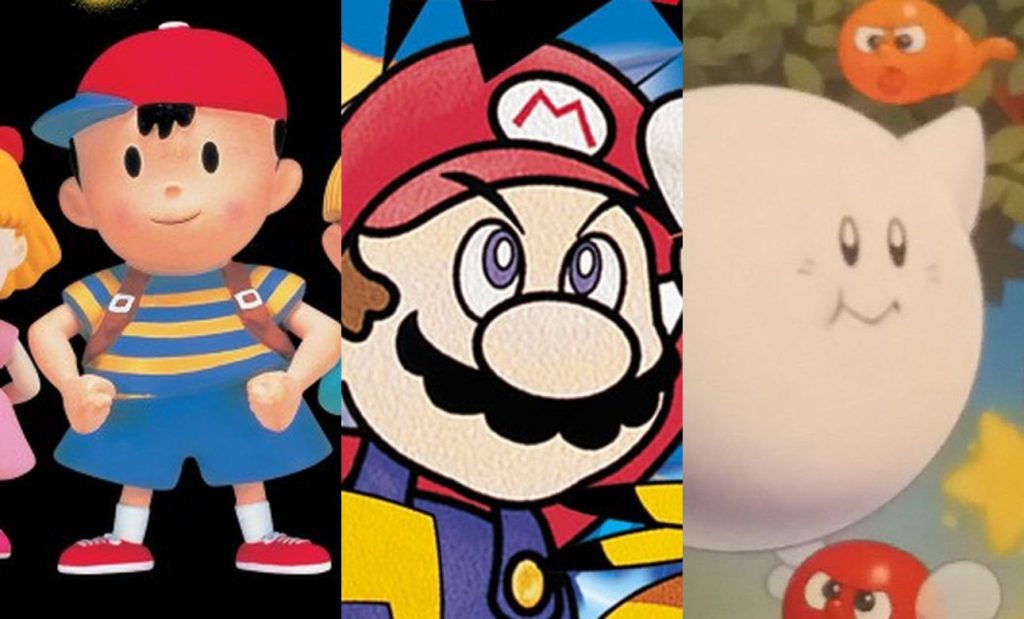
Längd: 160 sidor
Citatet: “After all, the whole point of a company is for regular people, each with their distinctive characteristics, to join forces and accomplish giant tasks they could not undertake alone.” – Satoru Iwata
Sammanfattning:
Ask Iwata är förmodligen så bra en bok kan bli när man sätter ihop den efter författarens död, baserat på artiklar han skrivit på internet. Allt kommer i en logisk ordning, och det är hela tiden intressant och nästan alltid inspirerande och upplyftande. Kapitlet där Shigeru Miyamoto och Shigesato Itoi bjuder på minnen och funderingar ger en fördjupning. Det enda negativa är att då boken bygger på ett antal kortare artiklar så saknar den många av de dalar, de lugnare partier, som en författare som skriver en hel bok förmodligen skulle lägga in mellan alla höjdpunkterna för att läsaren ska få ta igen sig lite. Här blir det väldigt intensivt hela tiden, med goda råd, fakta och analyser uppe på varandra. Men gillar du en sådan koncentrerad lässtil så är det en förstklassig upplevelse.
Jag låter Iwata själv komma till tals och berätta hur landet ligger, när det gäller att överleva och triumfera i en kreativ verksamhet.
“Nothing ever starts out perfect. It’s all about repeated trial and error. You try out different things and realize ‘Oh, that’s better, let’s do that,’ gradually improving the overall design.” – Satoru Iwata
“While I’m interested in making a large number of changes, I don’t make changes from a spirit of rejection. Rather, my feeling is this: ‘If I had been at Nintendo in the old days, I would have taken the same course of action that led to what we’re doing now.’ But times have changed. The world has changed around us. If we don’t change too, what’s going to happen? Should we take a path of gradual obscurity? Or should we take the path of the future, enabling more people than ever to enjoy the things we make?” – Satoru Iwata
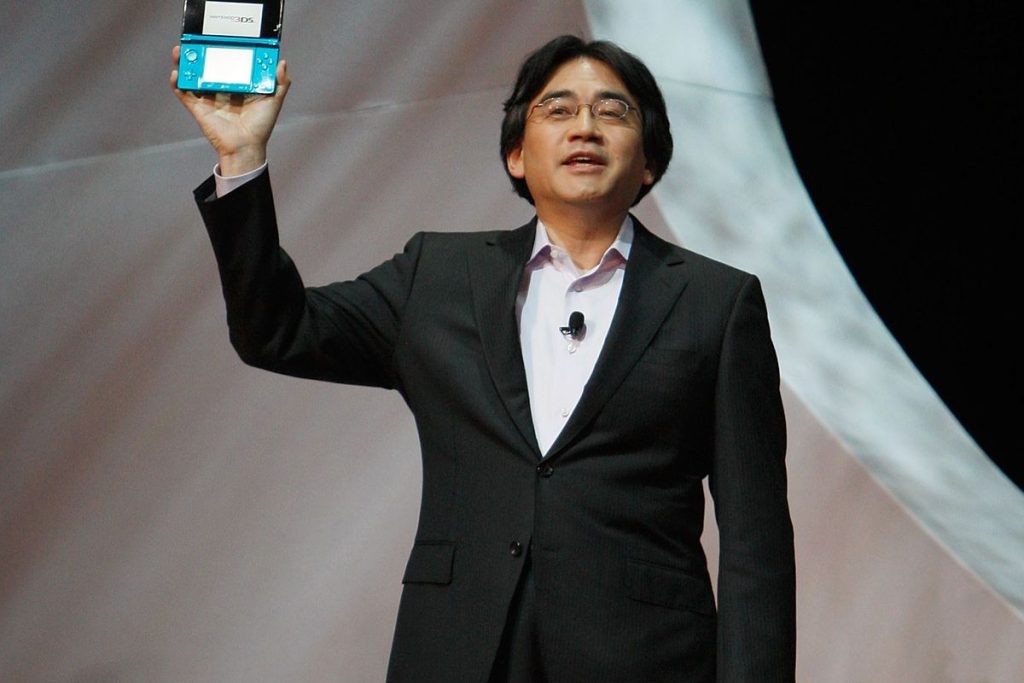
“We made it absolutely clear that our mission was too ‘shock people, in a good way’. Unless you can shock people, you’ll never gain new customers.” – Satoru Iwata
“The people who can take constructive criticism are capable of learning an incredible amount in a short period of time. When a person like this starts working at the office, it’s a huge relief for everybody there.” – Satoru Iwata
“Being human means having potential. I see the role of the organization as making sure that everybody’s latent potential is fostered as effectively as possible. The organization will squander its resources if energy is wasted on irrelevant tasks, but if you can direct that energy to the right place, you can exert incredible influence on the outside world.” – Satoru Iwata
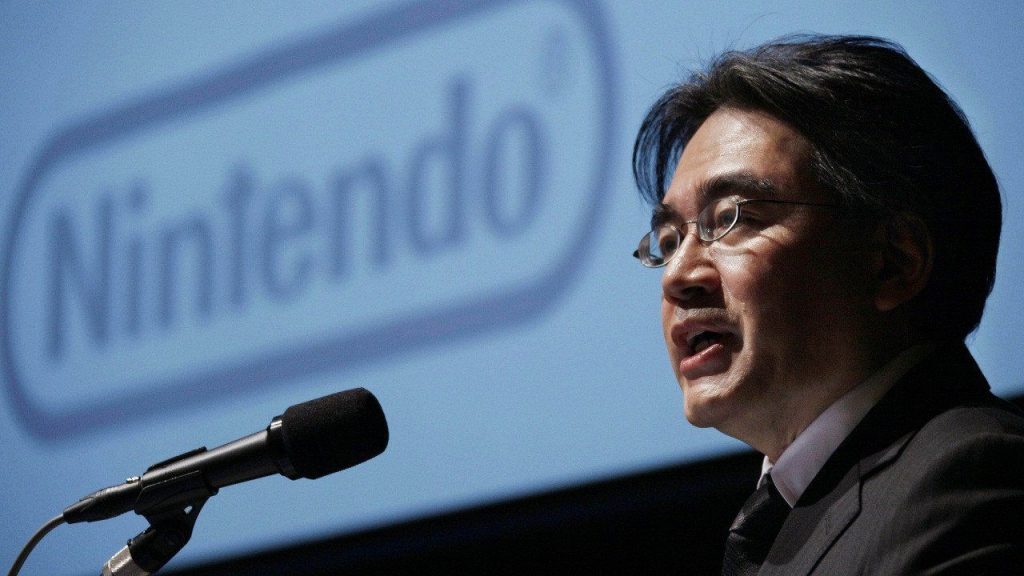
“It’s reasonable to worry about how people will assess the value of something that is unlike anything that’s come before. Ironically, this is the very thing that pushes me to get our message across.
Attempting things that nobody has done before not only means having no guarantee of success – it also means you can´t be cavalier and expect minimal results. I guess sometimes you just need to take the plunge.” – Satoru Iwata
”Early in development, there are so many unknowns: concerns about technology, a lack of concrete image for the goal, an unclear course of action. After all, taking a different path than others is truly terrifying. On the one hand, society revolves around the principle of strength in numbers, but we often have no choice but to find our own way. Honoring people for being different is part of Nintendo’s company culture, but being different comes in a huge range of shape and sizes and is particularly frightening when you are moving in the opposite direction from everyone else.
Though speaking personally, I think nothing is more hazardous than staying the course.” – Satoru Iwata
“Staying the course means having no future.
If you maintain the status quo, you end up fighting for survival, and gradually your fan base disappears. That’s the one direction I’m always trying to avoid.” – Satoru Iwata
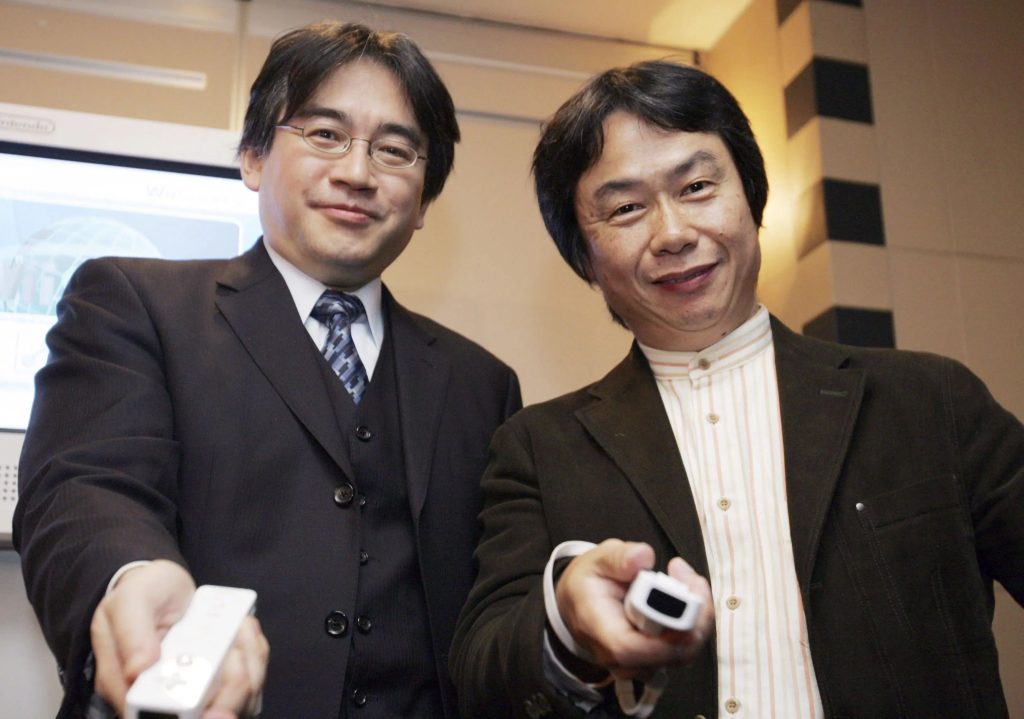
“When people receive feedback about what they’ve done, they feel more motivated next time around. But without feedback, nothing is sustainable. Feedback is our reward, what keeps us going. The world of video games uses this to its advantage and it’s fundamentally designed around the feedback people offer after an experience. This feedback might be pleasant or it might be unpleasant, but the real question is how you can incorporate it to keep its people with you, to keep them interested and excited. This sort of thing is always on my mind when I create.” – Satoru Iwata
“Apart from books, another thing Iwata really valued as a president was bringing people together for meetings. In no time, he managed to impress upon the company the importance of his role as facilitator.
In his view, a facilitator was a person that ensured that meetings were productive, adding a touch of creativity where it was lacking, or focusing the conversation where there were an excess of creativity. Effectively, it meant being the producer of a meeting. He made an effort of impress upon the company the importance, in any kind of meeting, of having a facilitator who was there to make the meeting show results. This sometimes meant tapping a specific person and saying ‘I need you to be the facilitator for this team.’ It’s interesting how being called upon serving as a facilitator can expand your knowledge base.” – Shigeru Miyamoto
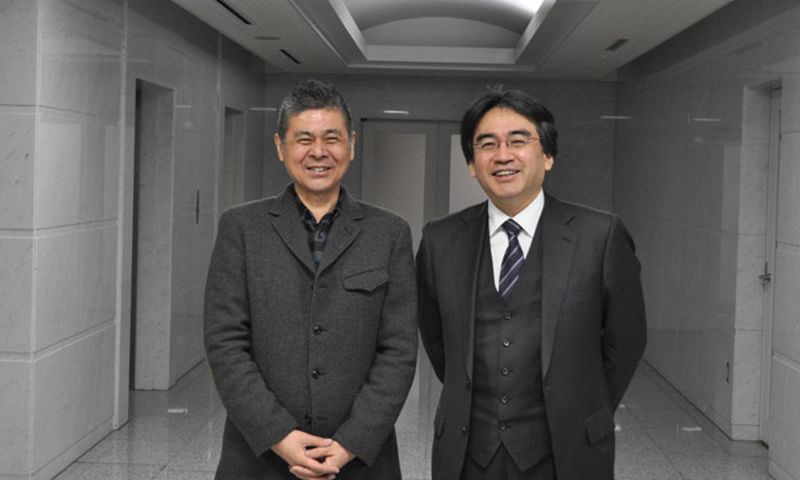
“”[Iwata] was the sort of person who wanted to make everybody happy. He wanted to be happy, like he wanted his friends to be happy and his costumers to be happy. I think I told him how I liked how he used the English word ‘happy’, though he pronounced it like a Japanese word whenever he said it. I shared his sentiment completely and was so thrilled to hear him say these things.
This part of the memory is so goofy that I hesitate to mention it, but every time Iwata said the word ‘happy’, he spread his fingers wide, like he was smiling with both hands. I’ll never forget that about him.” – Shigesato Itoi
Bästa biten:
“It makes me really happy when people enjoy my work. This could mean gamers, or maybe friends, or maybe the companies we work with, but what interests me is helping people enjoy themselves. Seeing the people around me looking pleased is what keeps me going.” – Satoru Iwata
Det sämsta med boken:
Med tanke på att bokens engelska titel ”Ask Iwata” är en syfting till Iwatas legendariska intervju-serie Iwata Asks är det besynnerligt, minst sagt, att denna nyskapande intervjuserie inte nämns med ett enda ord i boken. Även om Iwata själva aldrig skrev något om intervjuserien i sina egna artiklar som boken bygger på så borde förstås någon annan ha skrivit ett kapitel om bakgrunden till artikelserien, ställt några frågor till de som var med, och bjudit på fakta om hur serien utvecklades och hur den påverkade Nintendos utveckling. Att detta saknas är helt enkelt falsk marknadsföring.
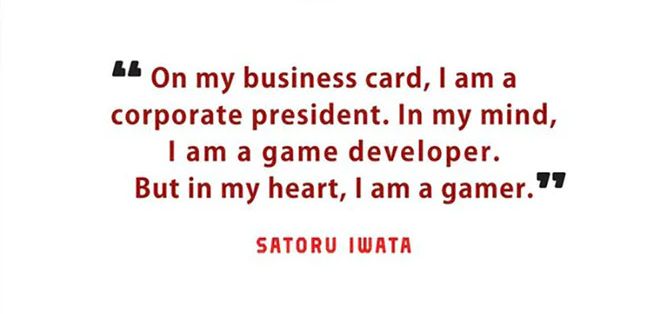
Spoilers? Nej, inte alls.

Köp från: Adlibris, Bokus, Amazon.se
Följ Shigesato Itoi på Twitter: @itoi_shigesato








Kommentarer